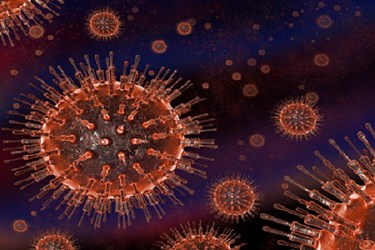BCM Engineers Virus-Specific T Cells Against 5 Infections

Scientists from the Baylor College of Medicine in Houston recently reported that they have identified a technique to rapidly generate virus-specific T cells (VSTs) against five infections that affect immunocompromised patients following bone marrow or stem cells transplantation.
Engineering VSTs in the past has been limited by the small amount of viruses that can be targeted by the cells. Costs and time constraints in producing VSTs have also hampered efforts by scientists. The new technique can help people with different types of leukemia and other conditions while reducing time and expenses to generate the cells.
Up to 20 percent of immunocompromised patients end with a fatal medical outcome due to severe viral infections. Current antiviral treatments are costly and frequently ineffective and can be highly toxic to patients.
Researchers led by Dr. Ann M. Leen, associate professor, and Dr. Anastasia Papadopoulou of BCM directly stimulated peripheral blood mononuclear cells (PMBCs) from allogeneic stem cell donors to generate a 13-fold expansion of the T-cells. The process took 9 to 11 days, an improvement from other methods, which could take up to 3 months. The VSTs were designed to identify immunogenic antigens from five viruses: Epstein-Barr virus, adenovirus, cytomegalovirus, BK virus, and Human Herpesvirus 6.
Dr. Leen explained, “Unlike conventional anti-viral drugs, our therapy improves virus-specific T cell immunity – the root cause of post-transplant viral infections – providing both an effective and safe strategy to treat viruses. Additionally, we can readily produce both individualized (patient-specific) products and T cell banks for third party use, facilitating the extension of T cell therapy to a standard of care for transplant recipients.”
The team studied the technique in 11 patients who received a stem cell transplant for different conditions, including immunodeficient disorders, sickle cell disease, leukemia, and lymphoma. Eight patients were afflicted with four active infections out of the five target viruses. Three other patients were administered the modified stem cell therapy to ward off infection. In all patients, the VSTs achieved an overall 94 percent virological and clinical response, which was sustained for the long term.
Dr. Helen Heslop, director for the Center for Cell and Gene Therapy and clinical principal investigator of the study, said, “This study translated improved manufacturing techniques developed in Dr. Leen's laboratory to the clinic… These advances mean that this therapy could be available for more patients to treat viral infections and provide long lasting protection.”
The study’s findings were published in the journal Science Translational Medicine.
